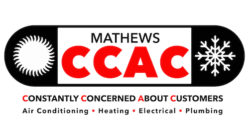Thoroughly insulating your home is probably the best way to save on energy costs. However, trying to insulate exterior walls in an existing home can be quite expensive and usually is not cost-effective. If you’re looking for a cost-effective way to improve your home’s energy efficiency throughout the year, concentrate on boosting the insulation in your attic.
Most attics are ventilated to the outside and should be insulated on the attic floor to keep the heat of the attic from penetrating to the living space.
You have several options when selecting effective attic insulation:
- Roll fiberglass insulation, also known as batts or blankets, works well between beams and joists in the attic. But the gaps in the insulation can allow hot attic air to pass through to the ceiling and minimizes the effectiveness of the insulation.
- Loose-fill insulation, consisting of fiberglass, cellulose, or rock wool pellets or fibers, can be blown into spaces needing insulation. This covers all the space better. Cellulose or rock wool can cause dust problems in the home because of its dusty nature. Fiberglass is by far the best blown-in insulation.
- Rigid foam insulation is more expensive than fiber-based insulation, but it insulates better than other types. Again it can leave gaps where the insulation does not fill all the voids between the ceiling joists and is normally not used.
- Spray Foam insulation is generally sprayed on the underside of the roof and actually turns your attic into a semi-conditioned space. This is great for sealing the attic and reducing the heat in the attic as well as the home. It can be quite expensive though.
Choose attic insulation with a high R-value. The R-value represents the insulation’s ability to resist heat, and higher R-values mean better protection against temperature extremes. In Corpus Christi and the Coastal Bend, for example, the U.S. Department of Energy recommends attic insulation with an R-value of R-38 to R-44.
Measure the thickness of existing attic insulation at various points. Fiberglass insulation less than 11 inches thick or cellulose insulation less than 8 inches thick means you have less than the minimum recommended R-30 value. Add insulation as necessary to reach a level of R-38 or greater.
CCAC, Inc. is, as our name says, Constantly Concerned About Customers. We provide trusted and reliable HVAC service to Corpus Christi and the Coastal Bend. We can help you choose the best type of insulation to put in your attic for both cost and energy savings. Contact us today for an estimate or to schedule an installation.
Our goal is to help educate our customers about energy and home comfort issues (specific to HVAC systems). For more information about attic insulation and other HVAC topics, download our free Home Comfort Resource guide.
Mathews CCAC Air Conditioning and Heating services Corpus Christi, TX. Visit our website to see our special offers and get started today!












